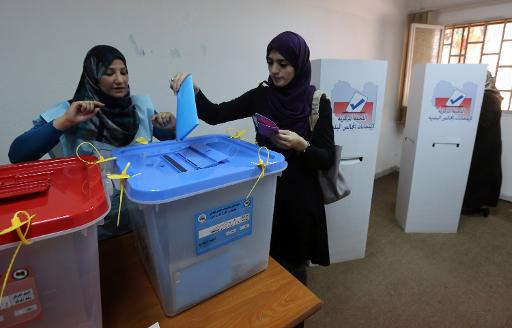
Election-Method Expert Discusses Election Methodology Theory, the Possibilities For Serious Reform in America, Vote Splitting and Honest Voting Strategies
In continuation of Democracy Chronicles’ series of interviews with prominent members involved with “The Declaration of Election-Method Reform Advocates“, we now turn to Andrew Jennings, Chief Financial Officer and a member of the Board of Directors of the Center for Election Science. Mr. Jennings is a resident of Mesa, Arizona.
In the “About Us” section of the Center for Election Science website, Mr. Jennings is described as follows:
“Andy was born and raised in Mesa, Arizona. He did his undergraduate work in mathematics at Arizona State University. Andy continued at Arizona State when in 2010 he completed his Ph.D. in mathematics. Given his strong interest in voting theory, Andy did his dissertation on the concepts of monotonicity and gaming in both ordinal- and cardinal-class voting systems. Andy continues to live near his roots in Mesa, Arizona. He is also the founder of Shoptivate.com, a software company that sells search solutions for e-commerce sites.”
Mr. Jennings discusses election reform in the United States as well as voting methodology.
Democracy Chronicles founder Adrian Tawfik conducted an exclusive interview series with an international group of election method proponents including prominent signers of the Declaration of Election-Method Reform Advocates. The best place to start off is the Democracy Chronicles introduction and then take a look at each of these interviews:
- Richard Fobes – Election Method Reformer Speaks With DC
- Aaron Hamlin – Interview With President of Center for Election Science
- Andrew Jennings – Redistricting, Vote Splitting and Honest Voting
- augustin – Writer Discusses Election Reform and New Website
- Michael Allen – Election Method Reformer Seeks Radical Changes
- Jameson Quinn – Election Expert Discusses Reform in US and Guatemala
- Michael Ossipoff – Democracy Chronicles Author Discusses Approval Voting
- Robert Bristow-Johnson – Expert Demands Reducing Money in Elections
Also see the DC Interview With Creator of Wooden Models of Voting Methods with artist Peter A. Taylor.
Interview with Andrew Jennings:
Democracy Chronicles: What characteristics do you think are most important for a voting method to have? How does it deal with Vote Splitting and Honest Voting?
The process should allow many good candidates to run without splitting the vote and the voting process should match up pretty well with the thought process voters use to evaluate the candidates.
Never require voters to betray favorites. If I think John Doe is the absolute best candidate in the world to for US president, then usually John Doe isn’t in the race. But if he were, even as a third-party candidate or an independent and he had no chance of winning, I should be able to rank him first or give him the highest grade without compromising my voice among the other contenders.
It should allow, even encourage, honest voting, if possible. Voting is so much easier if you don’t have to worry about being strategic, and society is much happier if people don’t feel like their opponents cheated to win. Candidates should come out of the election with a societal grade, so they really know whether they have a mandate, and so everyone feels like their vote counts by having some effect on the final scores, however small.
Democracy Chronicles: What do you think is the most important election reform needed where you live (either locally or nationally)? Why is this reform important?
Both locally and nationally, we need a system that allows many good candidates to run. One that doesn’t encourage politics of fear.
Democracy Chronicles: What is your opinion on other aspects of election reform such as reforming money’s role in politics or redistricting?
I wish there were some way to reform money’s role in politics, but I’m afraid it’s impossible. Politicians have power and money naturally flows downhill toward power. Whatever roadblocks we establish for businesses trying to influence politicians, the money will find a way around them. I think the only answer is to try to decrease the power of big government and bring all important decisions back to the local level. Unfortunately, government power and responsibility is much easier to ratchet up than to ratchet down.
On Vote Splitting and Redistricting
As for redistricting, for a jurisdiction with two legislative bodies, like the United States or Arizona, I think one body should be elected with a proportional voting system that ignores geography. The other body can use districting, but it should be done by computer (with an algorithm like shortest splitline) or with a public contest and a predefined rule (anyone can submit maps and the one with the lowest total perimeter wins). We should minimize or eliminate all human judgment in the redistricting process. A non-partisan committee is not good enough.
Leave a Reply